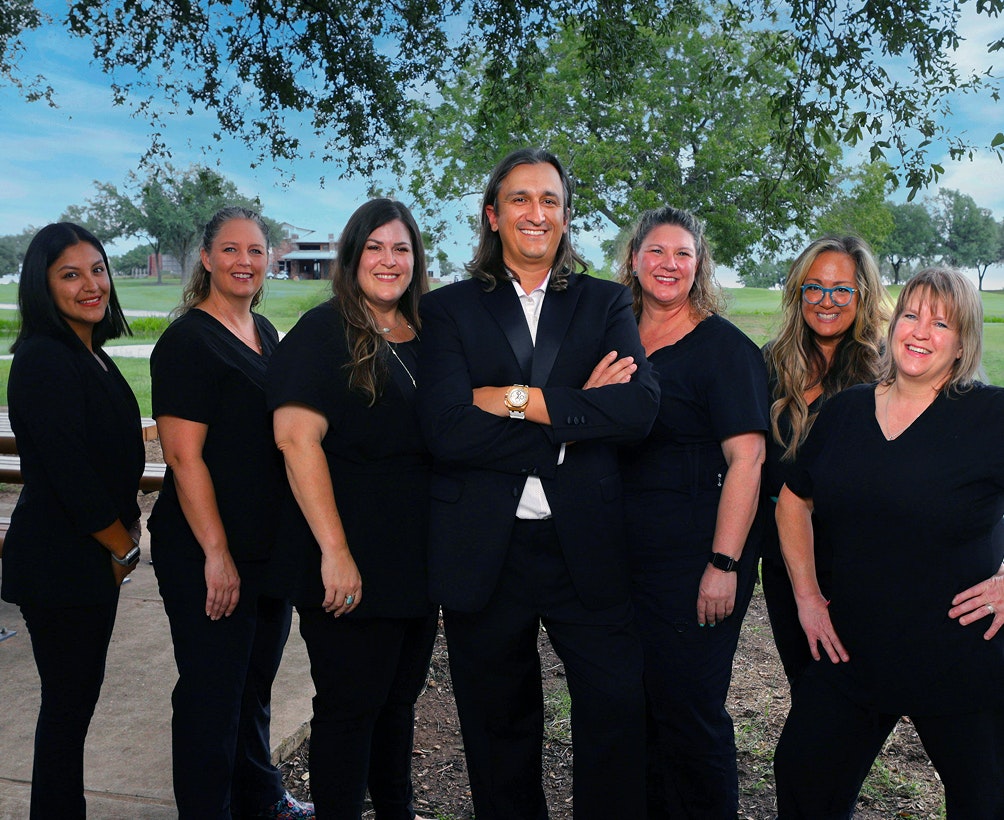Tooth grinding and sleep disruption – does stress play a role?

Whether you’re aware that you grind your teeth in your sleep or someone has pointed it out to you, this nocturnal activity is one that you may not give much thought to. That is until it becomes a serious problem that takes a toll on the health of your teeth. Tooth grinding, or bruxism, is the name given to what happens when you clench or grind your teeth and jaw when you’re asleep. Because you’re sleeping, you may not know you’re doing this. Some people clench their teeth when awake, unaware they’re doing this. Others clench or grind their teeth in their sleep only. Bruxism can lead to many concerns beyond the potential damage to your teeth.
But just what could be behind your bruxism? Before you can get to treating it, you need to understand the underlying issues contributing to tooth grinding when you’re sleeping. These factors may have a role in your bruxism:
- Genetics. You could have just inherited this from a parent or grandparent.
- Smoking. Those with nicotine dependence are at a much higher risk of developing bruxism.
- Caffeine and alcohol. The use and abuse of caffeine and alcohol have been shown to increase the incidence of sleep bruxism.
- Certain medications. Some medications, including those that help to treat depression and attention deficit hyperactivity disorder (ADHD), may contribute to bruxism.
- Stress and anxiety. People who are stressed show an increased chance of bruxism.
Is stress contributing to you grinding your teeth in your sleep? Learning more about how your stress contributes to bruxism can help you to understand the best ways to address and treat it.
Can you stop grinding your teeth at night?
You may wonder if there’s any way that you can stop grinding your teeth while asleep. If your bruxism is due to increased levels of stress, one of the first steps you could take is to work on addressing your levels of stress.
Some of the signs of stress you may be experiencing could include:
- Feeling irritable, easily frustrated, and angered
- Feelings of being overwhelmed
- Anxiety and feeling nervous, even in familiar situations
- Experiencing racing thoughts, even when in calm environments
- Signs of depression, including losing interest in things you once enjoyed
- Feeling tension, particularly in your shoulders and neck
That same tension in your shoulders and neck can flow over when you’re asleep. You may wake up clenching your jaw and feeling discomfort in your jaw, teeth, and neck. It may continue on throughout your day. You may also experience headaches every morning, which can definitely start to interfere with your quality of life.

Addressing your stress, the underlying cause of your bruxism, can go a long way toward helping you get through it. There are a few things that you can do to work through the stress in your life.
Identify the most significant stressors in your life. For many, it’s work or family related. While there may not be much you can do to address issues at work or even at home with your family, there may be some steps you can take that’ll help you better cope with the stress in your life.
- Speak with your primary care physician to help rule out any other conditions that may contribute to your levels of stress.
- Work with a therapist who can help you learn stress-management strategies.
- Consider adding more physical activity to your daily routine. Even a small walk or yoga may help you to get some relief from the stress that you’re feeling.
- Cut back on the amount of caffeine that you consume daily. Other dietary changes may help you to get a better night of rest.
Protecting your teeth

Stress can definitely contribute to bruxism and the disruption to your sleep. You can take steps to work on the stress that you’re struggling with, which can help to protect your teeth. You can also take additional steps to help protect your teeth from the damage that bruxism can cause.
- Schedule a checkup with your dentist so that you can have a thorough examination of the current health of your teeth and gums. This examination may include X-rays that can see if there is any damage to your teeth that’s not immediately visible.
- Keep up with your routine cleanings so that your dentist and hygienist can keep an eye out for any damage that happens before it turns into a serious problem.
- Work with your dentist to address any existing damage to your teeth. Whether cavities, chips, or cracks on your teeth, the sooner that they are addressed, the less likely you’ll be to have serious complications like tooth loss.
Speak with your dental professional about the benefits of a night guard. There are many over-the-counter options when it comes to night guards. These dental appliances are similar to a dental retainer. They are made from material that can comfortably be worn while you sleep. The night guard can be worn over the lower or upper teeth. It will work as a barrier between your upper and lower teeth when you clench down in your sleep.
Over-the-counter options are a popular choice for those who grind their teeth in their sleep. They can be helpful, but the better option is to be fitted for a night guard device in your dentist’s office. A custom-fitted night guard will not only be of a higher quality, but it will be custom-made to fit comfortably over your teeth. Your dentist will be able to ensure that you get the right fit and help to make sure you’re comfortable wearing it.
If you suspect you’re grinding your teeth at night, and if you’re struggling with getting a good night of rest, and finding that you’re waking with discomfort in your jaw and neck, it could be time to schedule a checkup to see what’s going on. The sooner that you address any concerns with the health of your teeth, gums, and jaw, the sooner you’ll be able to get started with a treatment plan that helps to keep issues from getting worse.



